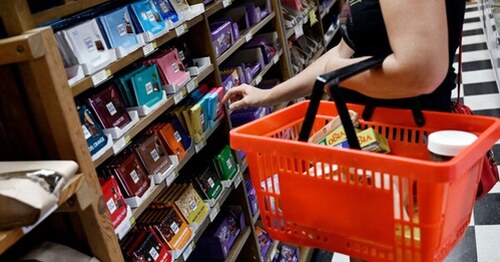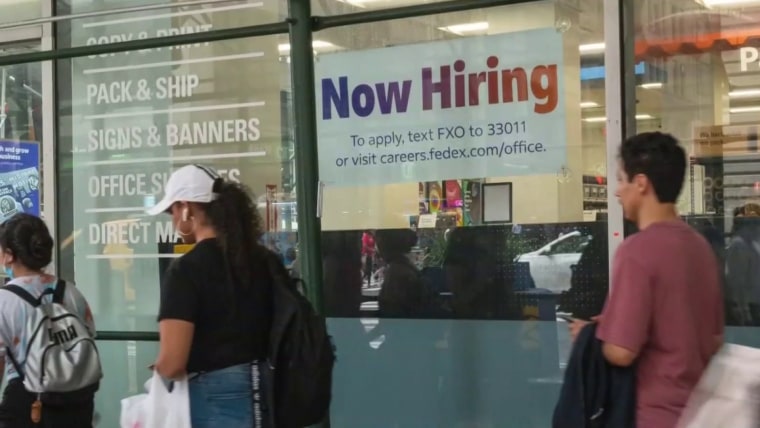
The economy added 528,000 new jobs. Why does it still feel off?
The U.S. economy added 528,000 new jobs last month, while the unemployment rate fell to 3.5% — tying the pre-pandemic low, the Bureau of Labor Statistics said Friday.
But for many people, something may still feel off about the economy. It could be the 9% rate of inflation. Or the two consecutive quarters of negative gross domestic product data.
"It's a mixed bag," said John Leer, chief economist at Morning Consult. "Everything people feel about the economy now, they're likely going to be feeling differently six months from now, especially if we experience widespread job losses."
Economists like Leer are already raising the prospect of higher unemployment because of the Federal Reserve's plans to keep raising interest rates. As part of its so-called dual mandate, the nation's central bank seeks to balance job and price stability — and right now, it believes there is too much demand for labor and not enough stability in consumer prices.
So the Fed is expected to raise its key interest rate for the fifth time this year at its next meeting in September. The idea is to make borrowing more expensive to cool off demand and try to reverse price gains, bringing inflation down to where the central bank wants it to be, around 2%.
As Federal Reserve Chairman Jerome Powell put it at his most recent news conference:
"We think it's necessary to have growth slow down. ... We actually think we need a period of growth below potential. ... If we were to be able to get inflation back down on the path to 2% and ultimately get there."
In an email to clients Friday, Seema Shah, chief global strategist at Principal Global Investors, said the Fed is likely to raise its key rate by another 0.75%.
"Not only is the labor market undoubtedly still tight, but wage growth is uncomfortably strong," Shah said, suggesting that strong wages, while great for consumers and their families, are what leads to increased spending, higher demand and persistent inflation.
"The Fed has its work cut out for it to create sufficient slack that could ease price pressures," she said.
Shah added that while all the jobs lost during the pandemic have now been regained, "markets will take [Friday's] number as a timely reminder that there is significantly more Fed hiking still to come."
"[Interest] rates are going above 4% — today’s number should put to bed any doubters," Shah said. The current rate is between 2.25% and 2.5%.
While the Fed's plan should, eventually, put the economy back in balance, there is likely to be pain in the labor market coming soon, Leer said.
"In the near term I do think there’s a trade-off that is unfortunate," he said.
So which parts of the economy are going to be experiencing that pain? Leer pointed to the tech sector, where layoffs and hiring freezes are already widespread. He also expects a pullback in some of the aggressive spending that American consumers, especially those with higher incomes, have been doing on travel and leisure activities. That's because some of that demand has been fueled by the limited ability to travel during pandemic lockdowns.
As a result, travel and hospitality jobs, which were among the hardest hit during the pandemic, have seen some of the strongest bounce back — but could cool off again as spending slows down.
The jobs data released Friday shows the sector added 96,000 new hires in July, but the industry still has 1.2 million fewer jobs than it did in February 2020.
In the meantime, American consumers will continue to face an uncertain economy. To adapt, there is ample evidence that many workers are taking on multiple jobs, including driving for ride-hailing platforms like Uber, to help make ends meet. Leer estimated that about 1 in 10 workers are now having to do so to earn extra money.
Powell, meanwhile, has said the process to get the economy on track will likely be painful.
Source: https://www.nbcnews.com/business/economy/new-jobs-hiring-and-the-economy-whats-going-on-rcna41731







